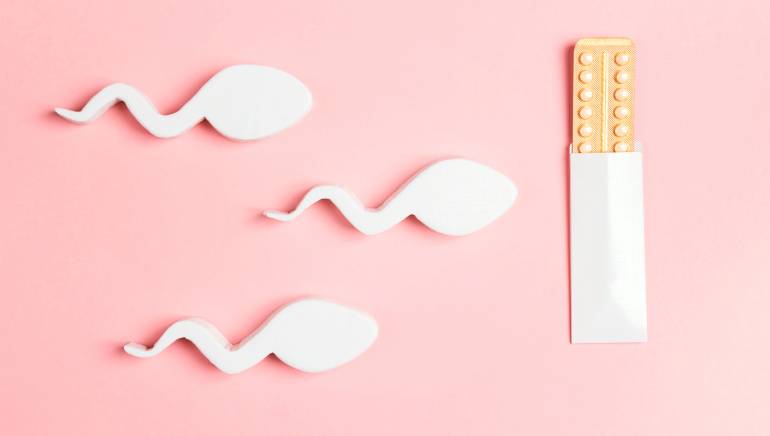Explore birth control options to manage reproductive health. Learn about pills, IUDs, and more to find the ideal method for your needs.
Choosing birth control is a key part of managing your reproductive health. It’s not just about preventing pregnancy. Birth control can also help with hormonal issues, reduce period pain, and fit your daily life and plans. Learning about options like pills, IUDs, implants, and natural methods can help you decide what’s best for you. Before making a decision, consult a healthcare professional for guidance. They can help you find what matches your health and lifestyle. Each method has its pros and cons, so understanding them is important.
Why do women have to take birth control?
Many women use birth control not just to prevent unplanned pregnancies, but also to manage various reproductive health conditions.
Common reasons include:
- Irregular periods: Regulating menstrual cycles can provide relief from the unpredictability of menstrual cycles.
- Polycystic ovary syndrome (PCOS): “Birth control can help manage symptoms like acne and excessive hair growth,” Dr Padma Srivastava, Gynaecologist, Motherhood Hospitals, tells Health Shots.
- Severe menstrual pain: Hormonal birth control methods may alleviate discomfort.
Effective birth control also lets women plan their families in a way that fits their personal and career goals.
What factors should you consider when choosing birth control?
Choosing birth control is personal and depends on a few critical factors:
- Health status: Pre-existing conditions matter.
- Age: “Different methods may be more suitable for different age groups”, suggests Dr Srivastava.
- Reproductive goals: Whether you want to become pregnant soon, in the distant future, or not at all.
- Lifestyle: Consider your daily routine, work schedule, and personal preferences.
What are 5 methods of birth control?
Here are some common birth control methods to help you understand your options.
1. Pills
Oral contraceptive pills are one of the most widely used and convenient methods for birth control. They contain hormones that primarily work by preventing ovulation, as per the journal Pharmaceuticals.
Benefits:
- It can regulate menstrual cycles.
- May help reduce period pain and improve acne symptoms.
- Easy to take and widely available.
Disadvantages:
- Requires daily intake at the same time.
- It may not be suitable for women with issues like high blood pressure, migraines, or a history of blood clots.
- Consulting a healthcare provider before starting a pill is crucial.

2. IUDs (Intrauterine Devices)
IUDs are small devices inserted into the uterus by a healthcare professional. They come in two types: hormonal and copper, as per the Mount Sinai Journal of Medicine.
Benefits:
- Long-lasting (3-10 years).
- Low-maintenance and highly effective. Hormonal IUDs can alleviate heavy periods, while copper IUDs are hormone-free for those avoiding hormones.
Disadvantages:
- Initial cramping or spotting may occur, but typically decreases over time.
- A healthcare provider will determine whether this is the right option based on your medical history.
3. Implants
“Implants are small rods placed under the skin of the upper arm. They release hormones to prevent pregnancy,” advises the Obstetrician.
Benefits:
- Highly effective and long-lasting.
- Requires no daily effort, making it very convenient.
Disadvantages:
- Some women may experience changes in menstrual patterns or spotting.
- Consultation with a doctor is essential to ensure this method is suitable.
4. Natural Remedies
“Natural methods include tracking fertility cycles, using barrier methods like condoms, and avoiding intercourse during fertile periods”, according to the UK’s National Health Institute.
Benefits:
- Free of hormones and ideal for those preferring natural approaches.
- Flexible and no ongoing costs.
Disadvantages:
- Requires discipline and accurate tracking of cycles.
- Less reliable than medical methods, requiring a commitment to regular monitoring.
5. Emergency contraception
“Emergency contraceptive pills, also known as morning-after pills, are a backup option used within 72 hours after unprotected sex”, recommends Gynaecologist.
Benefits:
- Provides a safety net in case of contraceptive failure or unprotected intercourse.
- Easy to obtain without a prescription in many places.
Disadvantages:
- Not intended for regular use and should not replace standard contraceptive methods.
- Timing is crucial for effectiveness.
Disclaimer: At Health Shots, we are committed to providing accurate, reliable, and authentic information to support your health and well-being. However, the content on this website is intended solely for informational purposes and should not be considered a substitute for professional medical advice, diagnosis, or treatment. Always consult a qualified healthcare provider for personalised advice regarding your specific medical condition or concerns.

